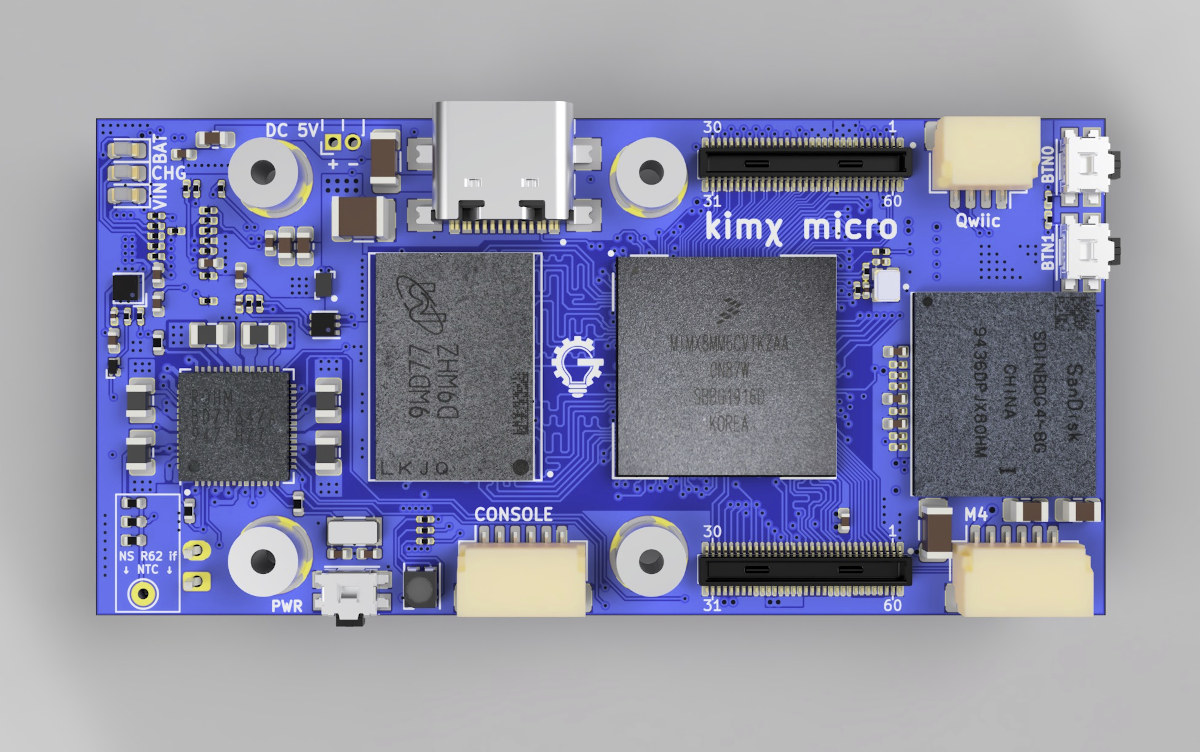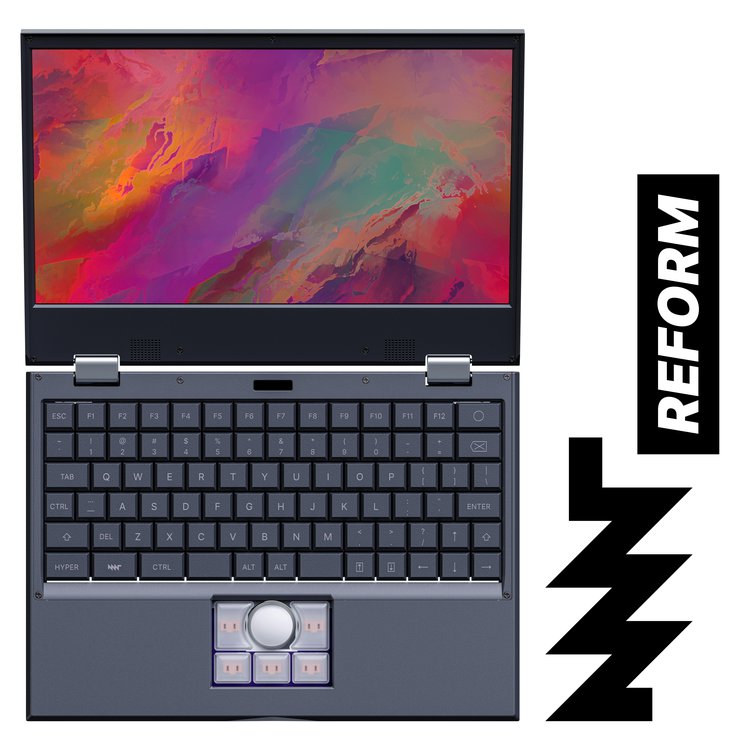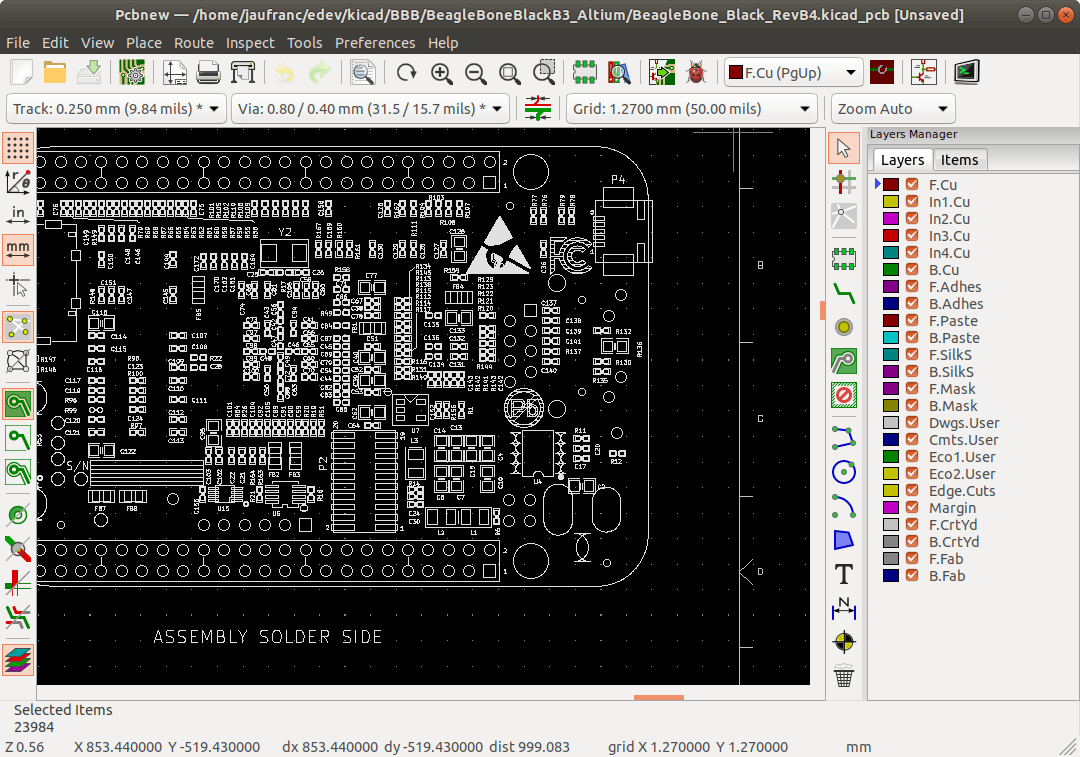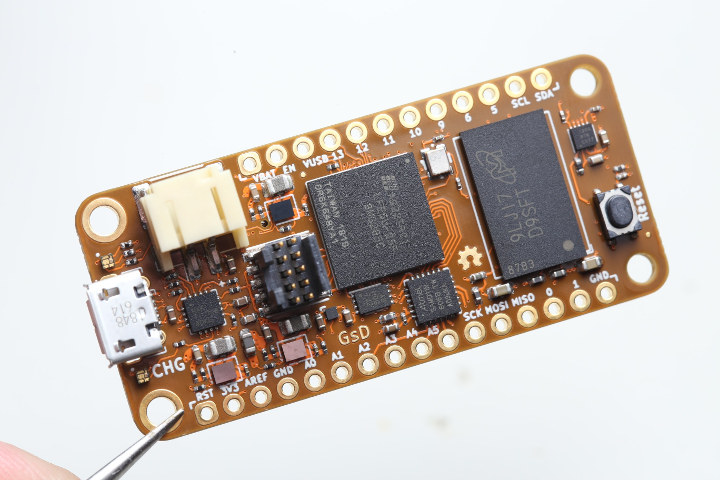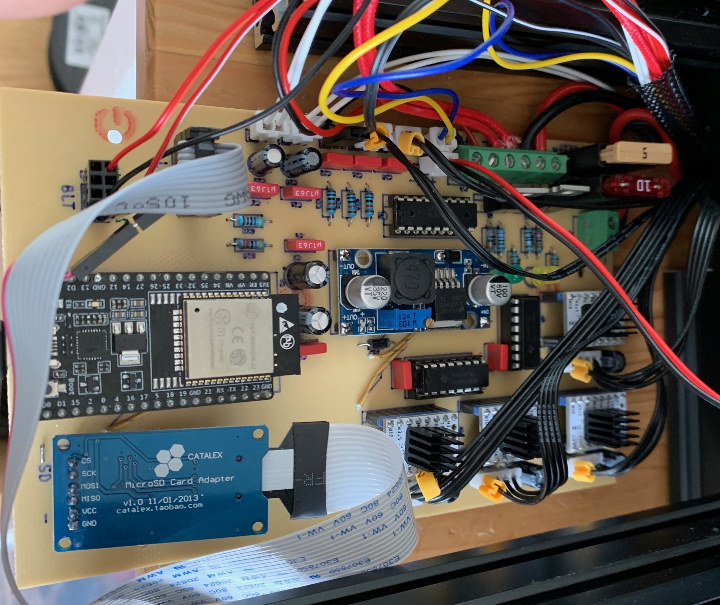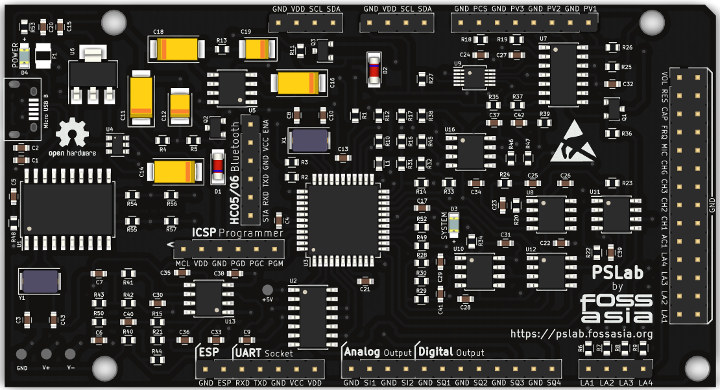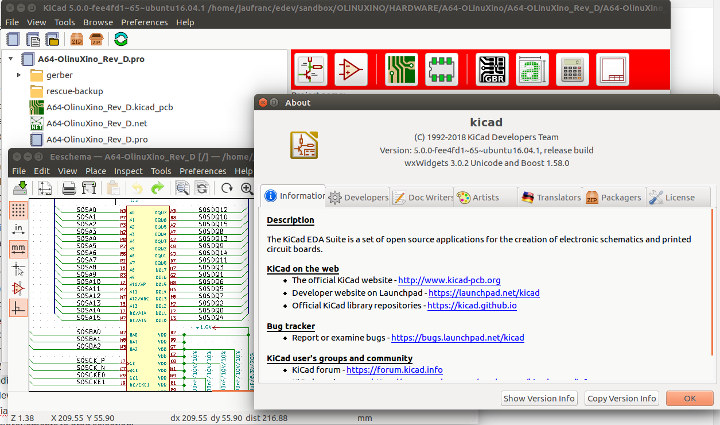The Raspberry Pi Zero (W/WH) board is great because of its size, price tag, and software support, but processing power is limited with Broadcom BCM2735 SoC only offering a single ARM11 core clocked at 1 GHz. There are already some more powerful boards in a similar form factor include Banana Pi M2 Zero or FriendlyELEC NanoPi Duo2 both equipped with an Allwinner quad-core Cortex-A7 processor, but there’s another upcoming board with NXP i.MX 8M Mini quad-core 64-bit Cortex-A53 processor. Meet Kimχ Micro (pronounced Kimchi Micro). Kimχ Micro (preliminary) specifications: SoC – NXP i.MX 8M Mini single to quad-core Cortex-A53 processor @ up to 1.8 GHz, Cortex-M4F real-time core @ up to 400 MHz, Vivante GC NanoUltra 3D GPU + GC320 2D GPU, VPU for 1080p60 video decoding and encoding; (Single and dual-core version of NXP i.MX 8M Mini processor are also compatible) System Memory – 2GB LPDDR4 Storage – 8GB […]
MNT Reform Open Source Hardware Laptop Launched for $999 and Up (Crowdfunding)
MNT Reform DIY Arm Linux laptop has been in the works at least since 2017. The open source hardware laptop is also fully modular with Boundary Devices Nitrogen8M SoM featuring NXP i.MX 8M quad-core Cortex-A53 processor and 4GB RAM, M.2 NVMe SSD storage, and standard, replaceable 18650 batteries. The good news is the laptop is now almost ready for prime-time and has been launched on Crowd Supply with price starting at $999 in DIY kit form without storage, and $1,300 for a complete, assembled system with 256GB NVMe storage. If you don’t have that amount of money to spend, but would like to support the project, a $40 MNT Reform T-shirt is also offered. Alternatively, the motherboard only goes for $550. Here’s a reminder of MNT Reform specification: SoM – Boundary Devices Nitrogen8M SoC – NXP i.MX 8MQuad quad-core Cortex-A53 processor @ 1.5 GHz, 1x Arm Cortex-M4F real-time core Vivante […]
How to Build KiCad on Ubuntu 18.04 / 20.04 and Import Altium PCB Files
KiCad open-source EDA (Electronics Design Automation) suite software is now very popular, and many new projects are designed with the utility. AFAIK, some companies like Olimex switched all their new designs to KiCAD. But since many schematics and PCB layouts have been designed with other tools like EAGLE, Orcad Allegro, or Altium PCB design tools, it would be nice to be able to import those designs into KiCad. Converters have been around for a long time but when I tried to convert Beagleboard-xM OrCAD schematics to import them in KiCAD back in 2012, the results were really awful and unusable. But I recently saw a tweet saying it’s now possible to import Altium files into KiCAD. Finally, importing #altium boards into #kicad is only one click away (in the developer version). This allows to view and edit #opensource #hardware which was designed with #proprietary software, and thus, in fact, not […]
OrangeCrab is an Open Source Hardware, Feather-Compatible Lattice ECP5 FPGA Board
Lattice ECP5 FPGA powered OrangeCrab is the work of Greg Davill who designed the Adafruit Feather-compatible board in KiCAD, crowdsourced schematics/PCB checking and published his progress on Twitter, and published the files of the open source hardware board on Github. OrangeCrab board hardware specifications: FPGA – Lattice ECP5 25/45/85 variants System Memory – Up to 8Gbit DDR3 Memory (x16) Storage – 128Mbit QSPI FLASH Memory (Bitstream + User storage), 4-bit MicroSD socket USB – Micro USB connector, full-speed direct USB connection to FPGA Programming – 10-pin FPGA programming header Expansion – I/O’s broken out via 30 through holes: GPIO, SPI, I2C, Analog, … 7x diff pairs, 1x single ended only Misc – Reset Button, charge LED (Green: external power, Yellow: when charging, No color: when running off battery), 48MHz Oscillator Power Supply – 5V via USB port, battery header for LiPo battery + battery charger chip Dimensions – Adafruit Feather […]
Open Source ESP32 3D Printer Board Supports Marlin 2.0 Firmware
Espressif ESP32 processor was initially designed for cost-sensitive IoT projects thanks to its built-in WiFi & Bluetooth connectivity and low price, but the WiSoC’s fairly powerful two Xtensa cores found other uses such as face detection and audio applications among others. But a few people are now collaborating to bring ESP32 to the world of 3D printers with an open source hardware RepRap 3D printer controller board that has beta support in Marlin 2.0 RC1 firmware. There’s no commercially available ESP32 3D printer controller board right now, so only prototypes from the community are available. There are mainly two version of the boards: R1 and R2 designed by Simon Jouet, and at least one member – Felixstorm – made his own R2 board from the MIT licensed KiCad based design. R2 is a better design leveraging ESP32’s I2S interface to have more output pins and improve stepping. Felixstorm connected the […]
FOSDEM 2019 Open Source Developers Meeting Schedule
FOSDEM – which stands for Free and Open Source Software Developers’ European Meeting – is a free-to-participate event where developers meet on the first week-end of February to discuss open source software & hardware projects. FOSDEM 2019 will take place on February 2 & 3, and the schedule has already been published with 671 speakers scheduled to speak in 711 events themselves sorted in 62 tracks. Like every year, I’ll create a virtual schedule based on some of the sessions most relevant to this blog in tracks such as open hardware, open media, RISC-V, and hardware enablement tracks. February 2 10:30 – 10:55 – VkRunner: a Vulkan shader test tool by Neil Roberts A presentation of VkRunner which is a tool to help test the compiler in your Vulkan driver using simple high-level scripts. Perhaps the largest part of developing a modern graphics driver revolves around getting the compiler to […]
Pocket Science Lab (PSLab) is an Open Source Hardware Electronics Lab
Last Saturday I created a virtual schedule for the Embedded Linux Conference Europe 2018 where I listed some of the sessions relevant to myself and hopefully regular readers of CNX Software, but due to scheduling conflicts one talk did not make it to the list: “Pocket Science Lab – An Open Source Hardware for Electronics Teaching & Learning” by FOSSASIA. The project is also referred to as PSLab, and aims to “create an Open Source hardware device that can be used for experiments by teachers, students, and citizen scientists to learn and teach electronics”. It looks interesting enough so let’s have a closer look. The project is inspired by the earlier expEYES project that combines with Raspberry Pi or other Linux platform to create an electronic labs, and the work by the Open Science Hardware community. PSLab key features and specifications: MCU – Microchip PIC24EP256GP204 16-bit microcontroller @ up to […]
Kicad 5.0.0 Open Source EDA Suite Released
Once upon a time, your only options to design schematics and layout PCBs were to purchase expensive software like OrCAD, or install a pirated copy of the same software, which was the standard practice in the country were I worked (China). Later on, Cadsoft EAGLE made projects much more affordable since they had a free version for hobbyists albeit limited to smaller boards. But in recent years, a new open source project called KiCad changed the market again, as it is entirely free to use, the community can be involved, and there’s no limitation. The software has even become good enough for companies like Olimex to design their new boards. A week ago or so, the project hit a new milestone with the release of KiCad 5.0.0. Some notable new features include: Whole Project New libraries for symbols, footprints and 3D models based on KiCad Library Convention (KLC) New 3D […]


